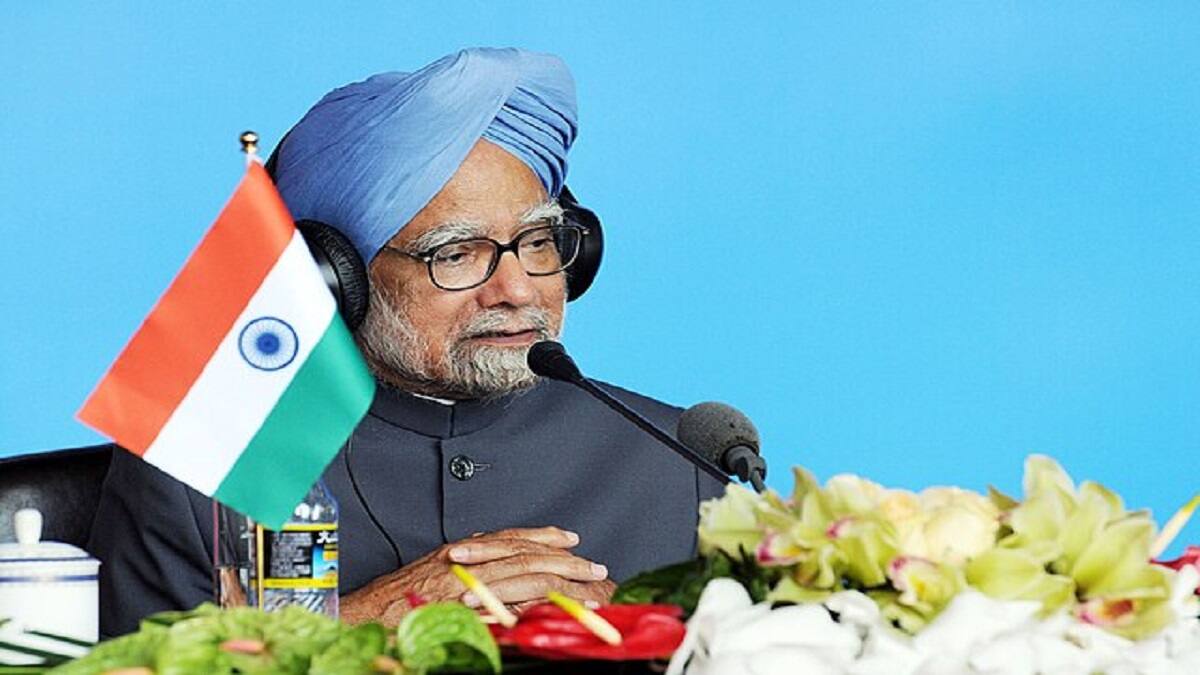RTE introduced during Manmohan Singh's term as PM a mix of success, failures: Experts
Press Trust of India | December 27, 2024 | 06:19 PM IST | 3 mins read
Manmohan Singh died at the All India Institute of Medical Sciences (AIIMS), Delhi, late on Thursday. He was 92.

NEW DELHI: The Right to Education (RTE) Act, 2009 introduced during tenure of former prime minister Manmohan Singh has been a mixed bag of success and failures, according to education experts. Singh's government introduced the Right to Information (RTI) Act, empowering citizens with access to government information.
The RTE Act aimed to provide free and compulsory education to children aged six to fourteen years, ensuring education as a fundamental right. The central government had last week notified implementation of a major change in the RTE Act, doing away with "no-detention policy" for class 5 and 8 students.
"RTE is a mixed bag of failures and successes. RTE admissions in unaided private schools is a landmark success in providing education to the children belonging to disadvantaged group and Economically Weaker Sections (EWS) of society and has become very popular. Everyone wants to send his ward to private schools under the EWS category," said Ashok Agarwal, a lawyer and education.
"The objective of RTE was to bring all school-aged children including disabled children in full-time regular schools but it has utterly failed. Government schools countryside have slowly closed down and enrolment of students has gone down. "Unfortunately, RTE is yet to achieve its constitutional goal that all children without exception go to regular school and receive quality education. It is still a dream for the children of masses," he added.
Success of RTE
According to Leena Bhattacharya, a former Global Education Monitoring (GEM) fellow at UNESCO, other than in north and central India, the RTE Act resulted in an improvement in the primary school completion rate of low-income children in all the other regions.
"The result also suggests that low-income children from rural India saw an increase in lower-secondary school completion rates in the post-RTE period," she said.
According to the report titled 'Implementation of the Right of Children to Free and Compulsory Education Act, 2009: Where Do We Stand', released by the Right to Education Cell (RTE Cell) and the Council for Social Development (CSD), New Delhi, significant progress in universal access and enrolment was achieved in a decade, largely due to the Sarva Shiksha Abhiyan (SSA) initiative.
Also read ‘Take action’ on 22,298 unrecognised schools in UDISE Plus by March: Education ministry to states
Rise of private schools
"However, since the enactment of the RTE Act, efforts towards universal access and enrolment have waned. This is evident from the decline of government schools and the rise of private schools, both in number and enrolment, indicating a neglect of government schools. Though there was a temporary shift back to government schools in 2021-22 due to the pandemic, the overall trend favours private education," the report said.
Manmohan Singh, the architect of India's economic reforms and a consensus builder in the rough world of politics, died at the All India Institute of Medical Sciences (AIIMS), Delhi, late on Thursday. He was 92. The Congress-affiliated National Students Union of India (NSUI) said Singh's legacy lives on through the Right to Education (RTE) Act.
"As he once said, 'Education is the key to unlocking a nation's potential.' The RTE ensures that every child, regardless of background, has access to quality education, empowering them to shape a brighter tomorrow," it said in a post on X.
25% free seats
The RTE Act also mandates a minimum of 25 per cent free seats for children belonging to weaker sections and disadvantaged groups (EWS) in all private unaided primary schools. Union Education Minister Dharmendra Pradhan had said in August that RTE, which was framed by the previous government, has a good provision to bring 25 per cent seats for underprivileged kids.
He had also appealed to state governments such as Punjab, Kerala, Telangana and West Bengal, which have not implemented RTE provisions, mandating the private schools to reserve seats under the RTE Act, to implement the provisions. Pradhan said though education comes under the concurrent list, school education is mainly taken care of by the state governments. "RTE and NEP both are complementary. Through both of them, it is our duty to ensure that all get education till class 12," he said.
Follow us for the latest education news on colleges and universities, admission, courses, exams, research, education policies, study abroad and more..
To get in touch, write to us at news@careers360.com.